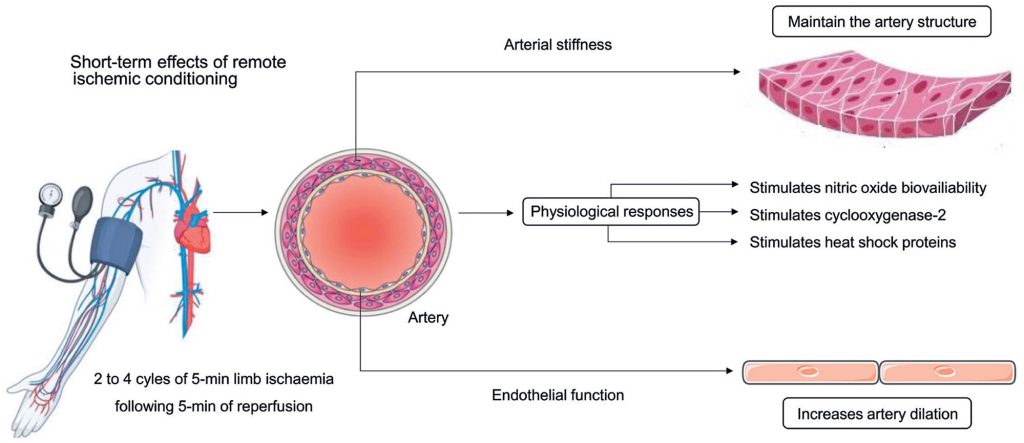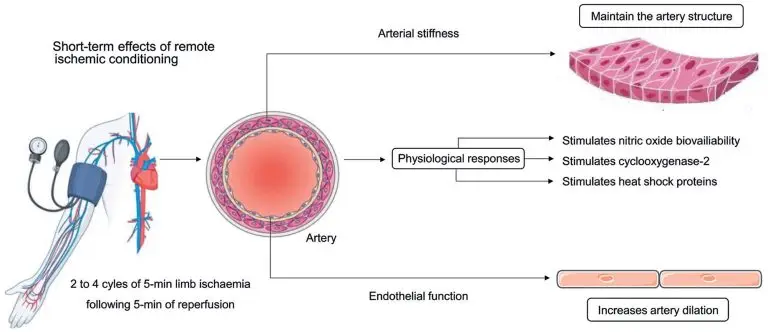einstein (São Paulo). 13/ago/2025;23:eRW1937.
Short-term effects of remote ischemic conditioning on vascular function in patients with cardiovascular diseases: a systematic review with meta-analysis
DOI: 10.31744/einstein_journal/2025RW1937
ABSTRACT
Objective:
The purpose of this systematic review with meta-analysis was to compare the short-term (≤1 month) effects of remote ischemic conditioning versus sham remote ischemic conditioning on vascular function in patients with cardiovascular diseases.
Methods:
A systematic review was conducted to identify relevant studies through six healthcare science databases up to March 2025. Arterial stiffness and endothelial function were defined as the primary outcome. Meta-analyses were performed using a random-effect model. Also, GRADE Pro software was used to evaluate the quality of evidence.
Results:
A total of 7 randomized clinical trials with 603 patients with cardiovascular diseases were included in the systematic review. Also, we included 5 studies in the meta-analysis. Compared with sham remote ischemic conditioning or control, short-term remote ischemic conditioning resulted in enhanced endothelial function (MD=4.22% [95%CI=1.75; 6.69]; p=0.0008; I2=0%) without any changes in arterial stiffness, (MD=-0.05 m/s [95%CI =-0.77, 0.67]; p=0.89; I2=89%).
Conclusion:
This systematic review and meta-analysis found that short-term remote ischemic conditioning was associated with improvements in endothelial function compared with sham remote ischemic conditioning or control in cardiovascular patients, without any impact on arterial stiffness.
Prospero database registration:
ID CRD42021234702.
71



